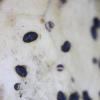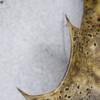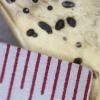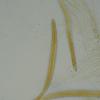
12-11-2023 23:47
 Ueli Graf
Ueli Graf
Hallo, ich habe diesen Pyrenomyceten auf einem Bla

10-11-2023 22:37
 Bernard CLESSE
Bernard CLESSE
Une idée de nom pour ce Cistella trouvé sur pét

10-11-2023 21:15
 Bernard CLESSE
Bernard CLESSE
Bonsoir à toutes et tous,Que pensez-vous de cet a

10-11-2023 12:59
 Stoykov Dimitar
Stoykov Dimitar
Hallo,I am looking for the description and illustr

05-11-2023 20:53
S. RebeccaHere is a Helotiale fungi found at Werfen/Salzburg

06-10-2023 21:48
Rajamaki MarttiHi! Today (6.10.2023) I found one i think Geoglos
Lophodermium neesii Duby
Ueli Graf,
12-11-2023 23:47

Hallo, ich habe diesen Pyrenomyceten auf einem Blatt von Ilex aquifolium gefunden. 0,5 mm lang.
Sporen 88 96 x 1,5µm und Asci 120 x 6.5µm.
Kennt den jemand oder ist es etwas anderes?
Danke und Gruss
Ueli






 Spore-und-Asci-0001.jpg
Spore-und-Asci-0001.jpg